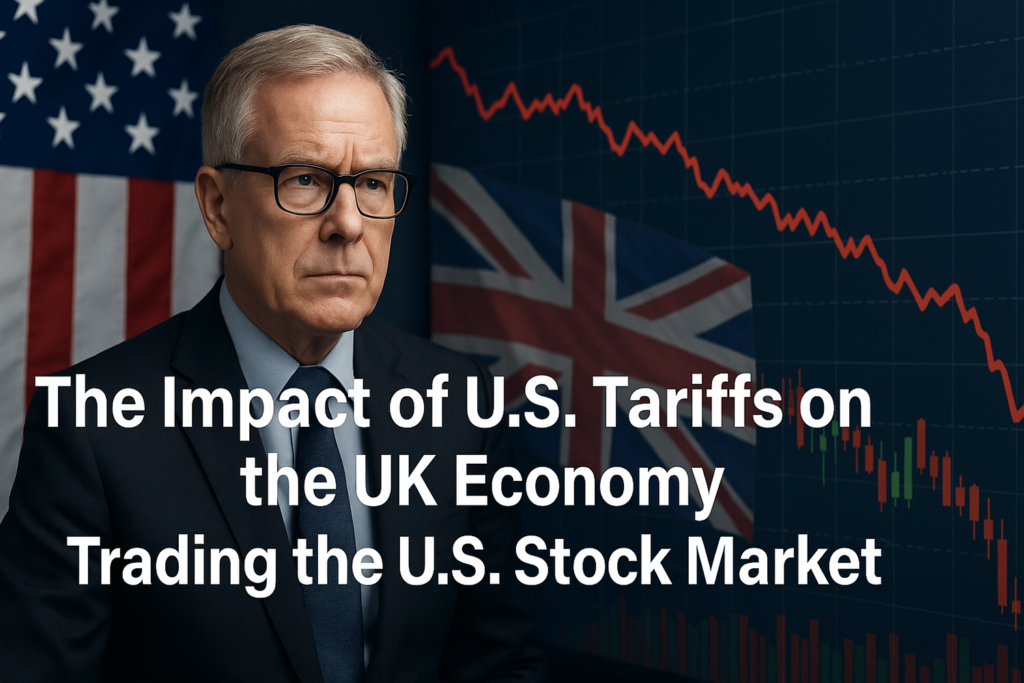As a seasoned trader with decades of experience navigating the ebbs and flows of global markets, I’ve witnessed firsthand how policy shifts can send ripples – or tidal waves- through economies and investment portfolios alike. The recent tariff onslaught initiated by U.S. President Donald Trump is a textbook example of such a seismic event, with profound implications for the UK economy and those of us entrenched in the U.S. stock market.
Immediate Market Turbulence
The announcement of a 10% tariff on UK exports to the U.S. has already triggered significant market volatility. The FTSE 100 suffered a staggering 10.3% decline, reflecting investor anxiety over escalating trade tensions. This downturn isn’t just a number – it’s a stark indicator of the market’s knee-jerk reaction to policy shocks.
Short-Term Outlook: Bracing for Impact
In the immediate future, we can anticipate continued market choppiness. The U.S. stock market has already felt the sting, with the S&P 500 plummeting 9.1% last week alone. Such volatility often breeds uncertainty, leading to cautious investor behaviour and potential liquidity constraints.
Medium-Term Outlook: Strategic Shifts on the Horizon
Looking ahead, the medium-term landscape hinges on policy responses and potential retaliatory measures. The UK government is exploring avenues to mitigate these tariff impacts, including the possibility of negotiating improved trade terms with the U.S. However, the success of such negotiations remains uncertain, and businesses should prepare for a range of scenarios.
Implications for UK Investors in the U.S. Market
For UK investors with stakes in the U.S. stock market, these developments necessitate a strategic reassessment. The increased volatility and potential for a U.S. economic slowdown could impact returns. Diversification becomes even more critical in this environment. Investors might consider increasing allocations to sectors or regions less affected by the tariffs or exploring asset classes that traditionally perform well during periods of economic uncertainty, such as bonds or commodities.
Strategic Recommendations
- Diversify Holdings: Ensure your investment portfolio spans various sectors and geographies to mitigate risks associated with any single market or industry.
- Stay Informed: Keep abreast of developments related to the tariffs and broader trade negotiations. Understanding the evolving landscape will enable more informed investment decisions.
- Consult Financial Advisors: Engage with financial advisors to reassess your investment strategy in light of current market conditions. They can provide personalised advice tailored to your risk tolerance and investment goals.
- Consider Defensive Investments: In times of heightened uncertainty, allocating resources to defensive stocks or assets like gold can provide a hedge against market volatility.
- Monitor Currency Exposure: Given the potential for currency fluctuations, particularly with the pound under pressure, consider the impact of exchange rates on your investments and explore hedging strategies if appropriate.
In conclusion, while the current trade tensions present challenges for the UK economy and investors, proactive and informed strategies can help navigate this complex environment. Remaining vigilant and adaptable will be key to safeguarding investments and capitalising on potential opportunities that may arise as the situation evolves.
